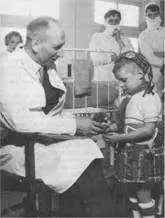Celiac.com 10/05/2015 - Studies on early life infections and risk of later celiac disease (celiac disease) are inconsistent but have mostly been limited to retrospective designs, inpatient data, or insufficient statistical power.
 A team of researchers recently set out to determine whether early life infections are associated with increased risk of later celiac disease using prospective population-based data. The research team included K. Mårild, C.R. Kahrs, G. Tapia, L.C. Stene, and K. Størdal. T Division of Epidemiology at the Norwegian Institute of Public Health in Oslo, Norway, the Department of Medical Epidemiology & Biostatistics at the Karolinska Institutet in Stockholm, Sweden, and with the Department of Pediatrics at Østfold Hospital Trust in Fredrikstad, Norway.
A team of researchers recently set out to determine whether early life infections are associated with increased risk of later celiac disease using prospective population-based data. The research team included K. Mårild, C.R. Kahrs, G. Tapia, L.C. Stene, and K. Størdal. T Division of Epidemiology at the Norwegian Institute of Public Health in Oslo, Norway, the Department of Medical Epidemiology & Biostatistics at the Karolinska Institutet in Stockholm, Sweden, and with the Department of Pediatrics at Østfold Hospital Trust in Fredrikstad, Norway.
Celiac.com Sponsor (A12):
This study is based on the Norwegian Mother and Child Cohort Study, and includes prospective, repeated assessments of parent-reported infectious disease data up to 18 months of age for 72,921 children born between 2000 and 2009. The team identified celiac disease patients through parental questionnaires and the Norwegian Patient Registry. Logistic regression was used to estimate odds ratios adjusted for child's age and sex (aOR).
Their data showed that, over an average follow-up period (ranging from 4.5-14.5 years, and averaging 8.5 years, 581 children (0.8%) were diagnosed with celiac disease. Children with ten or more infections up to age 18 months had a significantly higher risk of later celiac disease, as compared with children with four or less infections (aOR=1.32; 95% confidence interval (CI)=1.06-1.65; per increase in infectious episodes, aOR=1.03; 95% CI=1.02-1.05).
The aORs per increase in specific types of infections were as follows: upper respiratory tract infections: 1.03 (95% CI=1.02-1.05); lower respiratory tract infections: 1.12 (95% CI=1.01-1.23); and gastroenteritis: 1.05 (95% CI=0.99-1.11).
The results were largely unchanged even after making additional adjustments for maternal celiac disease, education level, smoking, birth weight, prematurity, infant feeding practices, birth season, and antibiotic treatment. This is the first large-scale population-based cohort study of this association.
These results are in line with earlier studies that suggest that early life infections may have a role in celiac disease development. However, further study is needed to fully eliminate surveillance bias and reverse causation as non-causal explanations for this association.
Source:
- Open Original Shared Link








Recommended Comments
There are no comments to display.